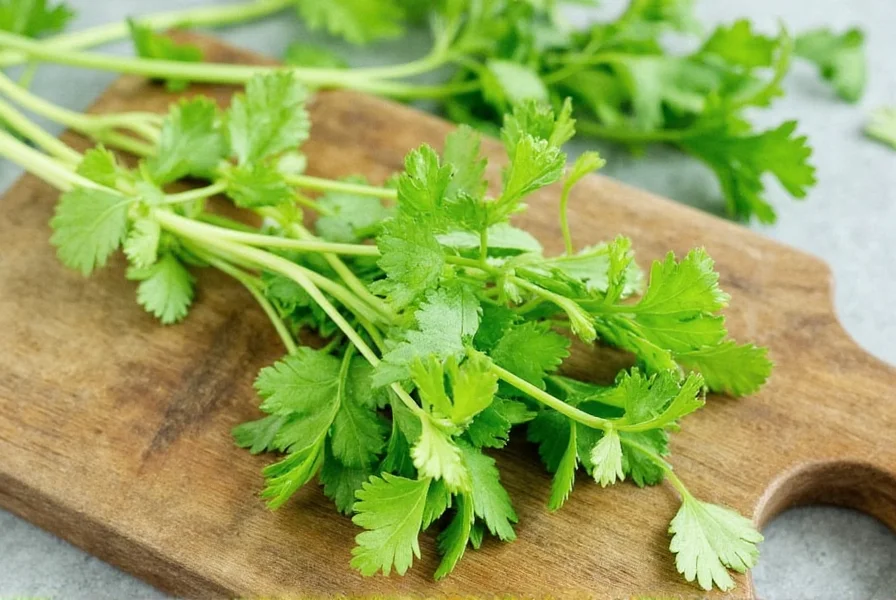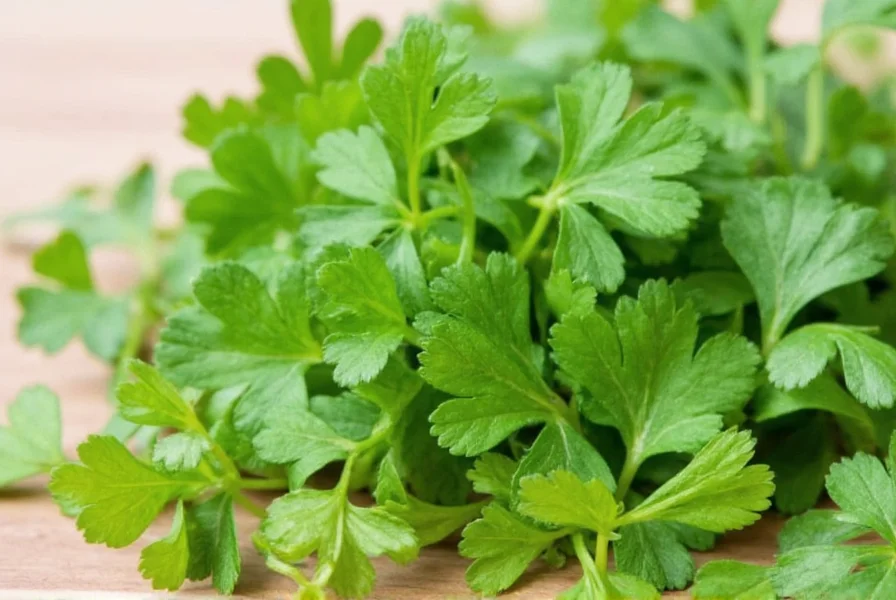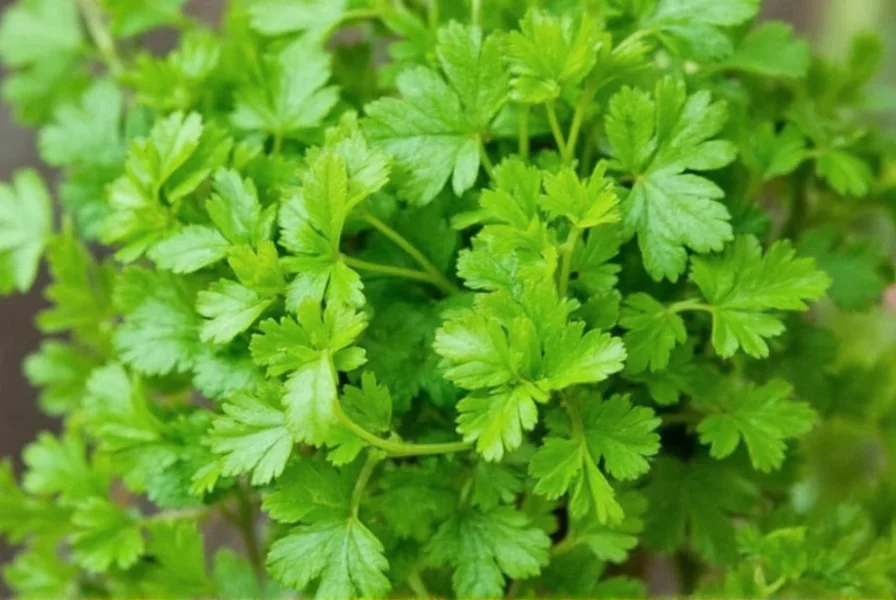Coriander (Coriandrum sativum) has been used for centuries in traditional medicine and global cuisines, but modern science is now validating many of its purported health advantages. This versatile herb, where the fresh leaves are commonly called cilantro and the dried seeds simply coriander, contains a powerful combination of vitamins, minerals, and bioactive compounds that contribute to multiple health benefits. Unlike many superfood claims that lack scientific backing, coriander's advantages are increasingly supported by peer-reviewed research.
Nutritional Profile of Coriander
Understanding the nutritional value of coriander leaves versus seeds helps explain their different health impacts. While both forms offer benefits, they contain distinct nutrient profiles that serve various physiological functions.
| Nutrient | Coriander Leaves (100g) | Coriander Seeds (100g) |
|---|---|---|
| Calories | 23 kcal | 298 kcal |
| Dietary Fiber | 2.8 g | 41.8 g |
| Vitamin A | 6748 IU (225% DV) | 0 IU |
| Vitamin C | 27 mg (45% DV) | 0 mg |
| Vitamin K | 310 mcg (388% DV) | 0 mcg |
| Iron | 1.77 mg (10% DV) | 19.9 mg (111% DV) |
| Magnesium | 26 mg (6% DV) | 351 mg (88% DV) |
The complete nutritional breakdown of coriander varieties shows why incorporating both forms into your diet maximizes potential health benefits. The leaves deliver exceptional vitamin content, particularly vitamins A and K, while the seeds provide substantial mineral density and fiber.

Scientifically Supported Health Benefits of Coriander
Powerful Antioxidant Properties
Coriander contains numerous antioxidants including quercetin, terpinene, and tocopherols that combat oxidative stress. A 2020 study published in Antioxidants demonstrated that coriander seed extract significantly reduced oxidative damage in cellular models. These antioxidant effects of coriander consumption may help protect against chronic diseases associated with free radical damage, including certain cancers and neurodegenerative conditions.
Blood Sugar Regulation
Research indicates coriander may help regulate blood glucose levels. A clinical trial in the Journal of Ethnopharmacology found that participants who consumed coriander seed powder experienced improved insulin sensitivity compared to the control group. The blood sugar control benefits of coriander seeds appear related to their ability to stimulate insulin secretion and improve carbohydrate metabolism, making them potentially valuable for those managing prediabetes.
Cardiovascular Health Support
Several studies have documented coriander's positive effects on heart health markers. Research in Lipids in Health and Disease showed that coriander seed supplementation reduced total cholesterol and triglyceride levels in animal models. The heart health benefits of regular coriander intake likely stem from its combination of dietary fiber, potassium, and bioactive compounds that support healthy blood pressure and lipid profiles.
Digestive System Benefits
Coriander has traditionally been used to support digestion, and modern research validates this application. The essential oils in coriander, particularly linalool, demonstrate carminative properties that reduce gas and bloating. A 2019 review in Phytotherapy Research confirmed that coriander for digestive health helps stimulate enzyme secretion and improves gut motility, making it valuable for those experiencing occasional digestive discomfort.
Anti-Inflammatory Effects
Chronic inflammation underlies many health conditions, and coriander shows promise in modulating inflammatory pathways. A study in Immunopharmacology and Immunotoxicology found that coriander extract inhibited key inflammatory markers including TNF-α and IL-6. These anti-inflammatory properties of coriander consumption may contribute to reduced risk of inflammatory conditions when incorporated regularly into the diet.
Coriander Leaves vs. Seeds: Different Benefits, Same Plant
While both forms come from the same plant, coriander leaves (cilantro) and seeds offer distinct health advantages. The fresh leaves provide exceptional vitamin content, particularly vitamins A, C, and K, making them valuable for immune function and bone health. The seeds, meanwhile, deliver concentrated minerals and fiber, with research suggesting stronger effects on blood sugar regulation and cholesterol management.
Interestingly, some compounds transform during the plant's maturation process. For example, linalool content decreases in the leaves but increases in the seeds, altering their therapeutic profiles. Understanding these differences between cilantro and coriander seed benefits allows for more targeted dietary incorporation based on specific health goals.
Practical Ways to Incorporate Coriander
To maximize the health benefits of coriander in daily diet, consider these evidence-based approaches:
- Add fresh coriander leaves to salads, salsas, and smoothies to preserve heat-sensitive vitamins
- Toast and grind coriander seeds to enhance bioavailability of beneficial compounds
- Use coriander seed tea (1 teaspoon crushed seeds per cup of hot water) for digestive support
- Combine coriander with healthy fats like olive oil to improve absorption of fat-soluble compounds
- Incorporate both fresh leaves and seeds into curries and stews for comprehensive benefits
Research suggests that consuming coriander as part of whole foods rather than isolated supplements provides the most balanced benefits, as the natural combination of compounds works synergistically.
Safety Considerations and Appropriate Consumption
Coriander is generally recognized as safe when consumed in culinary amounts. However, those with allergies to plants in the Apiaceae family (including parsley, carrots, and celery) should exercise caution. The safe consumption levels of coriander for health benefits typically range from 1-2 tablespoons of fresh leaves daily or 1-2 teaspoons of seeds.
While coriander shows promise for blood sugar regulation, individuals taking diabetes medication should consult their healthcare provider before significantly increasing coriander intake, as it may enhance medication effects. Similarly, those on blood thinners should monitor their vitamin K intake from coriander leaves, as vitamin K can interact with these medications.

Conclusion: Evidence-Based Perspective on Coriander Benefits
The scientific evidence supporting coriander health benefits continues to grow, validating many traditional uses of this versatile herb. From its impressive antioxidant profile to its potential effects on blood sugar and heart health, coriander offers multiple evidence-based advantages when incorporated as part of a balanced diet. While not a miracle cure, regular consumption of both coriander leaves and seeds can contribute meaningfully to overall wellness through their unique combination of nutrients and bioactive compounds. As with any dietary component, consistency and moderation yield the best results for long-term health benefits.
Frequently Asked Questions
What are the main differences between cilantro and coriander benefits?
Cilantro (fresh leaves) provides higher levels of vitamins A, C, and K, making it excellent for immune support and bone health. Coriander seeds contain more dietary fiber, iron, and magnesium, with research showing stronger effects on blood sugar regulation and cholesterol management. Both forms offer antioxidant benefits, but through different bioactive compounds.
How much coriander should I consume daily for health benefits?
For fresh coriander leaves, 1-2 tablespoons daily provides significant vitamin benefits without excessive vitamin K intake. For coriander seeds, 1-2 teaspoons of ground seeds daily offers optimal benefits for blood sugar and cholesterol regulation. These amounts represent culinary usage rather than therapeutic doses, making them safe for regular consumption as part of a balanced diet.
Can coriander help with digestion and how does it work?
Yes, coriander demonstrates significant digestive benefits through multiple mechanisms. The essential oil linalool in coriander acts as a carminative, reducing gas and bloating. Research shows it stimulates digestive enzyme secretion and improves gut motility. For best digestive effects, try coriander seed tea (1 teaspoon crushed seeds steeped in hot water for 10 minutes) consumed after meals.
Does coriander have scientifically proven blood sugar benefits?
Multiple studies support coriander's blood sugar regulation properties. Research published in the Journal of Ethnopharmacology demonstrated that coriander seed extract stimulates insulin secretion from pancreatic cells and improves carbohydrate metabolism. Clinical trials have shown modest but significant improvements in fasting blood glucose levels among participants consuming coriander seed powder regularly, suggesting potential benefits for those managing prediabetes.
Are there any side effects of consuming too much coriander?
When consumed in typical culinary amounts, coriander rarely causes side effects. However, excessive consumption (significantly more than normal dietary amounts) might lead to lowered blood sugar levels in sensitive individuals or interact with diabetes medications. Those with plant allergies in the Apiaceae family may experience allergic reactions. The vitamin K content in coriander leaves could potentially interfere with blood-thinning medications when consumed in very large quantities.











 浙公网安备
33010002000092号
浙公网安备
33010002000092号 浙B2-20120091-4
浙B2-20120091-4